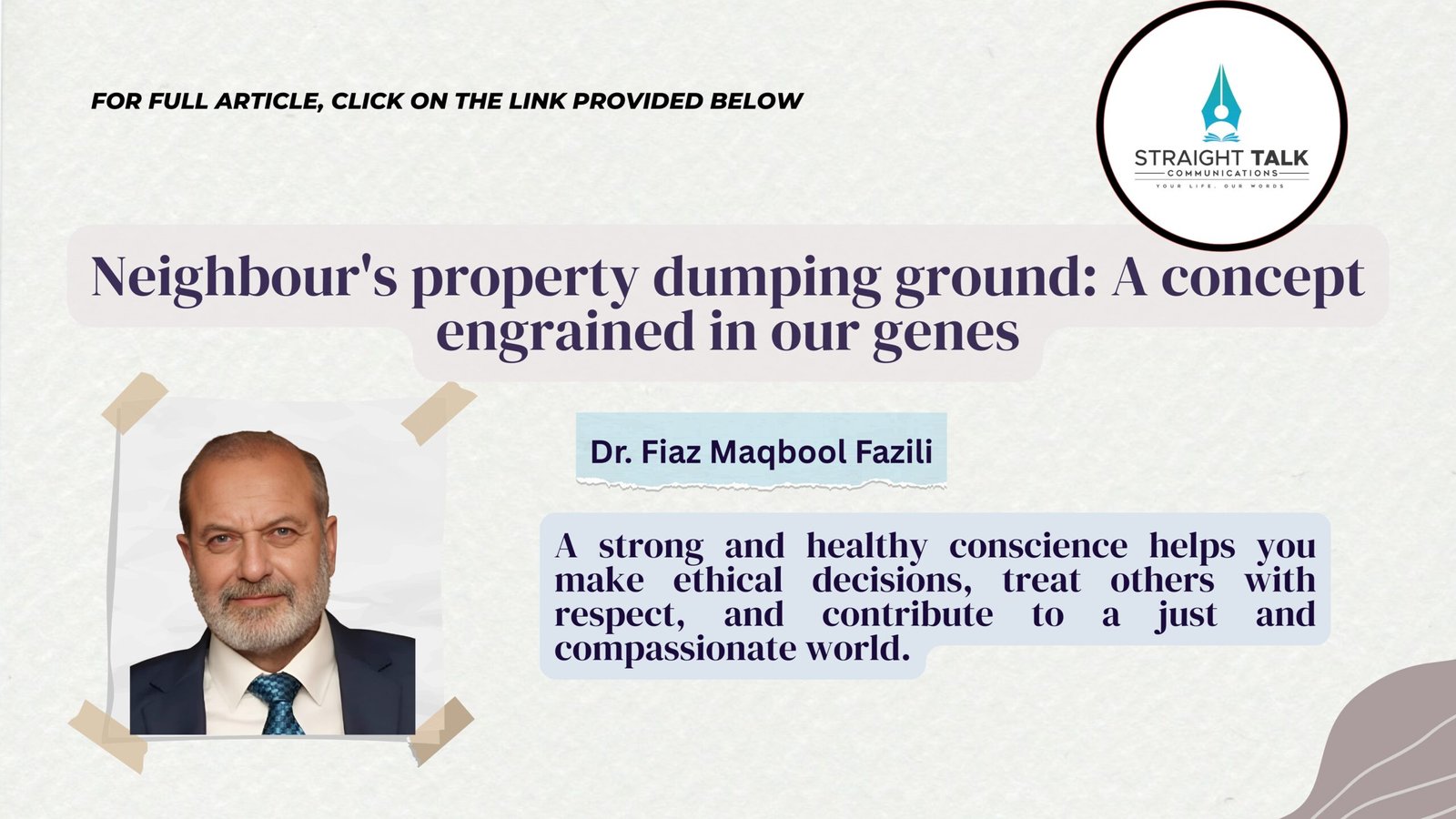Neighbour’s property dumping ground: A concept engrained in our genes

A strong and healthy conscience helps you make ethical decisions, treat others with respect, and contribute to a just and compassionate world.
Dr. Fiaz Maqbool Fazili
If wrongs in your surroundings don’t bother you, it’s important to consider a revision of your conscience. A healthy conscience should guide you towards right and wrong, prompting concern and action when injustices or harm occur, according to Verywell Mind and the Stanford Encyclopedia of Philosophy. If you are not experiencing this, it suggests a need to examine and potentially recalibrate your moral compass.
Elaboration:
Conscience as a Moral Guide:
Conscience is the inner voice that helps you determine right and wrong, guide prosocial behavior, and make ethical decisions. It’s a crucial part of your personality that helps you avoid acting on your most basic desires and impulses.
Signs of a Dysfunctional Conscience:
If you are not bothered by the wrongs happening around you, it might indicate a problem with your conscience. This could be due to various reasons, including a lack of empathy, a warped moral code, or even a form of moral blindness.
Revising Your Conscience:
Revising your conscience involves a process of self-reflection and examination. This might include:
Seeking to understand why you are not concerned: Why do you feel indifferent towards injustices? What values or beliefs might be influencing your perception of right and wrong?
Learning about ethical frameworks: Familiarizing yourself with different ethical theories and principles can help broaden your understanding of moral issues and guide you towards more just actions.
Engaging with diverse perspectives: Talking to people who have different values and beliefs can help you challenge your own assumptions and expand your moral horizons.
Practicing empathy: Making an effort to understand the feelings and experiences of others can help you develop a deeper sense of compassion and concern for their well-being.
Seeking guidance from trusted sources: Talking to religious leaders, counselors, or mentors can provide valuable support and guidance in your journey of conscience revision.
Consequences of a Weak Conscience:
A weak conscience can lead to a lack of moral integrity, which can negatively impact your relationships, your sense of self, and your overall well-being.
The Importance of a Strong Conscience:
A strong and healthy conscience is essential for living a moral and fulfilling life. It helps you make ethical decisions, treat others with respect, and contribute to a just and compassionate world.







